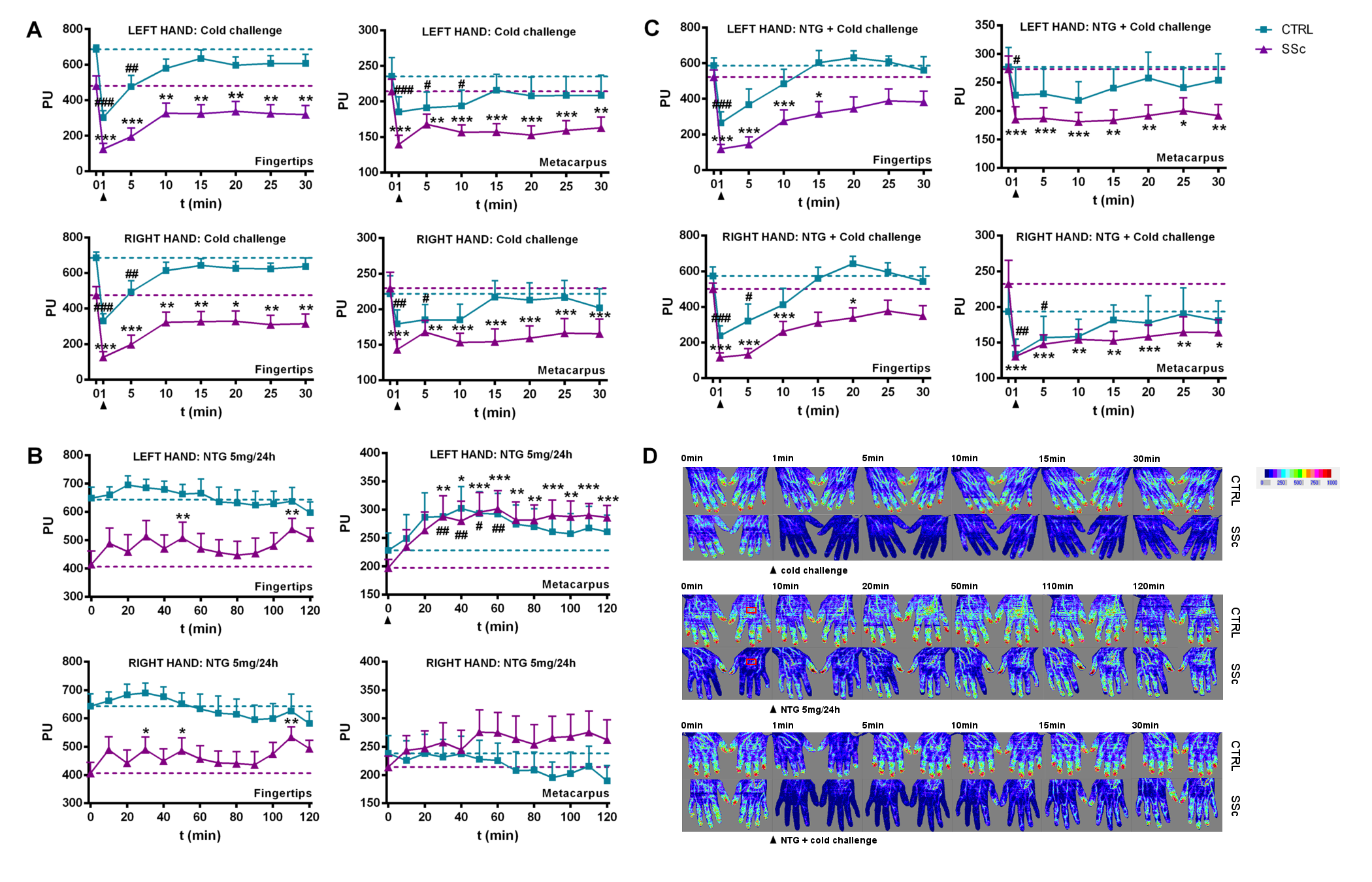Session Information
Date: Sunday, November 8, 2015
Title: Systemic Sclerosis, Fibrosing Syndromes and Raynaud's - Clinical Aspects and Therapeutics Poster I
Session Type: ACR Poster Session A
Session Time: 9:00AM-11:00AM
Background/Purpose:
Systemic sclerosis
(SSc) is a complex autoimmune disease, commonly associated with Raynaud
phenomenon (RP). The aim of this study was to characterize the microvascular
reactivity to nitroglycerin (NTG) patch application in SSc patients by Laser
Doppler imaging (LDI), and investigate predictive markers of the NTG response.
Methods:
The study included 21
SSc patients and 13 age-matched healthy volunteers. The SSc patients recruited
from Erasme Hospital, Brussels, Belgium, met the American College of Rheumatology
criteria for SSc, and presented with secondary RP. Blood flow was evaluated by
LDI, and expressed in perfusion units (PU), as well as the area under the
perfusion-time curve normalized for baseline flux (AUC). Microvascular morphology
was evaluated by nailfold capillaroscopy (NC). Baseline measurements were
complemented by dynamic studies analyzing microvascular function following
application of a NTG 5mg/24h patch (left hand metacarpus, during 120 min).
Subjects also underwent a cold challenge (both hands, 1 min at 15oC)
in the absence of, and following NTG application.
Results:
LDI measurements
revealed decreased fingertip baseline perfusion in SSc patients compared to
control. Moreover, SSc patients demonstrated a stronger vasoconstrictor
response to a cold challenge, at both hands (Fig 1A).
Figure 1.
Metacarpal application
of NTG patch led to an increase in blood flow and hand temperature in SSc
patients but not in controls (Fig 1B, Fig 2). Furthermore, NTG administration led
to a faster reperfusion after cold challenge (Fig 1C).
Figure 2.
Correlations analyses
revealed that the magnitude of the vasodilatory response following NTG was
inversely related with baseline fingertip perfusion and hand temperature (Fig
3A, B), but unrelated with structural microvascular features assessed using NC
(Fig 3D).
Figure 3.
Conclusion:
We provide evidence of
a vasodilatory reaction following application of a NTG patch in SSc patients
using LDI. Furthermore, the magnitude of the response to NTG was related with
functional, but not structural, features. In particular, SSc patients that
showed decreased baseline condition (lower fingertip perfusion and hand
temperature) benefited the most after NTG application. Our results support a further
evaluation of the NTG patch as a possible effective treatment for SSc-associated
RP.
To cite this abstract in AMA style:
Bentea G, Wauters A, Wautrecht JC, Cogan E. Nitroglycerin Patch Application in Systemic Sclerosis: Evaluation By Laser Doppler Imaging [abstract]. Arthritis Rheumatol. 2015; 67 (suppl 10). https://acrabstracts.org/abstract/nitroglycerin-patch-application-in-systemic-sclerosis-evaluation-by-laser-doppler-imaging/. Accessed .« Back to 2015 ACR/ARHP Annual Meeting
ACR Meeting Abstracts - https://acrabstracts.org/abstract/nitroglycerin-patch-application-in-systemic-sclerosis-evaluation-by-laser-doppler-imaging/



